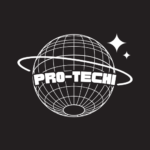In a world where perfection is always being pursued, Precision Technologies have become a game-changer in many different industries. Redefining the future of production, healthcare, agriculture, and aerospace, precision technology is more than simply a fad; it’s a revolution that brings together the most cutting-edge scientific breakthroughs with the complex needs of many industries.
Introduction
- Definition of Precision Technologies: At its core, precision technology refers to systems and tools that enhance the accuracy, efficiency, and quality of an industry’s products or services.
- Significance: In today’s fast-paced era, these technologies stand at the forefront of innovation, offering those adept enough to harness newfound capabilities and competitive advantages.
The Global Shift Towards Precision Technologies
- Adoption across Industries: From manufacturing to healthcare, precision technologies have made their mark in various fields, opening up new avenues for growth and development.
- Impact on Production: With the rise of Industry 4.0, precision technologies such as automation, robotics, and Artificial Intelligence are transforming traditional production processes into intelligent and efficient systems.
- Revolutionizing Healthcare: Precision medicine, which utilizes advanced technologies such as genomics and data analytics, is paving the way for personalized treatment plans and improved patient outcomes.
- Agriculture Revolution: Precision agriculture enables farmers to optimize crop production by monitoring and analyzing factors like soil conditions, weather patterns, and plant health.
- Space Exploration and Aerospace Industry: Precision technologies are crucial in developing high-quality, reliable, and efficient aircraft and spacecraft, furthering our exploration capabilities beyond Earth’s boundaries.
The Benefits of Precision Technologies
- Increased Efficiency: Precision technologies improve overall efficiency in various industries by reducing human error and streamlining processes.
- Cost Savings: Companies can save on production costs and optimize resources with precision technologies.
- Improved Quality: By minimizing variations and errors, these technologies enhance the quality of products and services, leading to increased customer satisfaction.
- Real-Time Data Analysis: Precision technologies offer real-time data analysis capabilities, providing valuable insights that aid decision-making.
Challenges and Opportunities
- Initial Investment: Adopting precision technologies requires a significant upfront investment, posing a challenge for smaller companies and businesses with limited resources.
- Training and Upgrading: With technological advancements happening rapidly, continuous training and upgrading of skills are necessary to keep up with the latest developments in precision technology.
- Cybersecurity Risks: As more industries rely on precision technologies, the risk of cyber threats and data breaches also increases.
- Opportunities for Collaboration: With a vast potential for growth and development, precision technology presents opportunities for collaboration between different industries and sectors.
Key Industries Benefiting from Precision Technologies
- Healthcare: In medicine, precision technologies aid in developing personalized treatment plans and permit minutely detailed surgical procedures.
- Manufacturing: The manufacturing sector has seen a remarkable shift with precision technologies at the helm, leading to streamlined assembly lines and impeccable production quality.
- Agriculture: The agricultural industry has optimized crop production using intricate data and automating tasks to achieve unparalleled yields.
- Aerospace: For the aerospace industry, precision technologies are integral for complex design details and maintaining the utmost standards in safety and performance.
Cutting-Edge Precision Technologies
- 3D Printing: The surge of 3D printing has revolutionized prototype development, allowing for rapid manufacturing and bespoke product creation across many sectors.
- Robotics: The advent of robotics in production lines and hazardous job roles has increased productivity and employee safety.
- Internet of Things (IoT): IoT devices provide real-time data analysis and connectivity that support proactive decision-making and operational dynamics.
- Artificial Intelligence (AI): Employing AI in various stages of production, customer interaction, and even predictive analysis has led to a more responsive and adaptive industry landscape.
Case Studies of Successful Integration
- Healthcare: For example, a renowned hospital chain has redefined patient outcomes with precise diagnostics and individualized treatment regimens made possible through precision medicine protocols and technologies.
- Manufacturing: Take the case of an intelligent factory where robotics play a pivotal role in automating repetitive tasks, increasing both speed and safety on the production floor.
- Agriculture: Consider a farm where precision agriculture tools have ensured every seed’s success, augmenting the practice of farming with data-driven insight.
- Aerospace: Look no further than aerospace giants integrating precision engineering into their daily routines, ensuring each mission’s success and, ultimately, people’s safety.
Future of Precision Technologies
- Challenges: While the future looks promising, adopting precision technologies has hurdles, such as the barrier to entry through costs and the need for skilled personnel to manage these advanced systems.
- Innovations: Despite such challenges, continuous innovation is poised to create even more robust and accessible solutions, pushing businesses to new heights.
Precision Technologies as a Driver of Global Innovation
- Insights: With each stride in precision technology, new doors open for business opportunities untouched by current models and thought processes, setting the stage for a global renaissance of technological application.
Conclusion
- Recap: The synthesis of acute accuracy, efficiency, and the relentless pursuit of quality encapsulates the essence of precision technologies. From improving human health to perfecting the production line, these tools have paved the way for an innovative tomorrow.
- Transformative Potential: This collective shift towards precision is not just a change in how industries operate; it’s a landmark in human ingenuity, paving the way forward with each calculated and precise step.
In the nexus of technology and progress, precision technologies are the stalwarts of a ready, strategic, and exact future. Businesses and individuals alike must come aboard as we voyage into an epoch carved by precision and defined by outstanding innovation.




